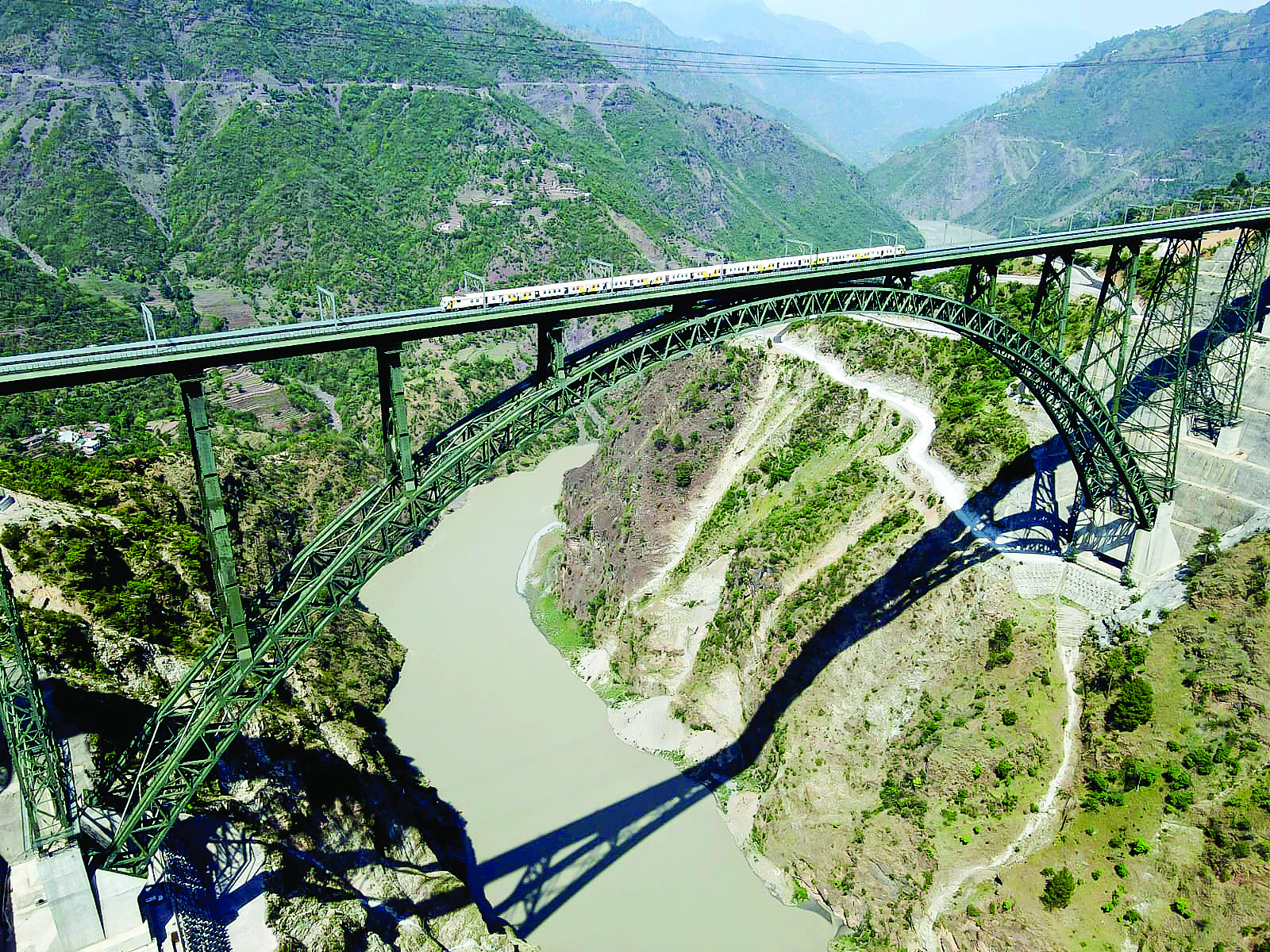NEW DELHI: Reasi’s rise from an unknown, obscure landlocked location in Jammu to a geo-economic hot spot should be understood from two contexts: geo-strategic connectivity and mineral resources.
The third tenure of the Modi government from the first day itself was faced with rising tensions in the Jammu region. There were fresh incidents in Reasi, Kathua, while the threats in Doda and Poonch continued from before.
Today Narendra Modi is not just the head of a political coalition and a political party. He’s an institutional head representing India 2024—this means that it’s not the Modi government that’s targeted, there’s something in the possibilities and the opportunities of India 2024 that’s targeted.
When I was a child, we had a relative working on a dam project in Reasi. We spent a few days with the family in the summers enjoying peaches and picturesque locations. That was then the possibility of Reasi dam—scenic locations and peaches. Look at how locally contained were these opportunities. Tourism was extremely local, peaches were consumed locally and the dam was providing some employment and accommodation to its employees and irrigation and hydropower to a society which was then predominantly agricultural.
While my nostalgia of that visit lives on, India 2024 has no connection with it. India 2024 is defined by global ambitions, economic resurgence and goals for mid-century and the land-locked Reasi has a big role to play in that. It’s these geo-economic ambitions of India that are therefore under attack.
Collective ambitions and goals are massive forces and the rise of an economic demography like India is not a small possibility in the geopolitical arena. Its ripple effect will be felt around the world—in fact it’s already being heard. Now in this context, let us look at Reasi afresh.
REASI’S RISE
Reasi’s rise from an unknown, obscure landlocked location in Jammu to a geo-economic hot spot should be understood from two contexts: geo-strategic connectivity and mineral resources. But before we go into that, let’s understand Reasi’s demography.
Reasi district has only two tehsils: Gool Gulabgarh and Reasi with a commutative population of over three lakhs. It has only about 56,000 households, out of which over 50,000 are rural (253 villages) and the rest are urban.
Reasi’s population is 50% Muslims, 49% Hindus and the remaining includes minor populations of Sikhs and Christians. Its five towns are predominantly inhabited by Hindus, which means the Muslim population is predominantly rural.
INDUSTRIALIZATION VS TERROR ECOSYSTEM
There are many narratives of increasing industrial investments in Jammu and Kashmir but let us take it from the perspective of the competition between two funding ecosystems: formal industrial investments vs terror ecosystems.
The last few decades of terrorism in Jammu and Kashmir meant least formal industrialization. There was either a government sector for employment or informal businesses as an employment alternative. The only other option (and the only one option) for highly trained populations like those trained in infotech, biotech etc was to migrate to cities that hosted corporations. The only investors until recently in Jammu and Kashmir were family linked. Conflict narratives and threats meant no encouragement for the formalization of the economy in the state.
In this context, two revolutionary things happened in the recent past in Reasi. One was the development of the world’s highest railway bridge, the “Chenab Rail Bridge” that connects Reasi with Sangaldan in Ramban, and makes rail connectivity possible between Jammu and Kashmir. Any stretch of railways means the upliftment of the local economy. Imagine the geo-strategic and geo-economic significance of this bridge.
The second development was the discovery of lithium in Reasi. A rare earth element whose discovery could be of immense strategic significance because of its use in high tech including military technology. Such a big haul of lithium implies many things for India, particularly in the Indo-Pacific supply chain context.
There are 50 elements on the 2022 critical minerals list published by the United States Geological Survey, according to Dr Fabian Villalobos, an associate engineer at the Rand Corp.
Supplies of many of them, particularly refined rare earths and lithium, have been historically dominated by Chinese companies, Villalobos had told FORUM, an Indo-Pacific defence forum.
To overcome the Chinese monopoly of the rare earth supply chain, the Quad nations (India, Australia, Japan and the US) have been envisioning their alternative supply chains. Now place Reasi in this larger Indo-Pacific context and reflect on the recent attack and the other recent incidents.
GREAT GAME CONTINUES
After writing his book, “Great Game, On Secret Service in High Asia”, Peter Hopkirk had written about the “New Great Game” (added as a foreword to the original book). In fact the Great Game never ended and it continues.
What was the tri-junction between the British Empire, Russian empire and China’s Qing dynasty in the late 19th century is now the Great Game between the Communist China-led alliance (including Pakistan and others) and the India-anchored Quad.
Reasi should be seen in this larger geo-economic context. In fact the whole of Jammu and Kashmir is placed in a complex geo-economic context where the only counter to formal industrialization has been the informal terror funding ecosystems.
Terror ecosystems cultivate/instigate sectarian conflict because they thrive on these narratives as they cultivate conflict and confuse normalization which is a must for investment, industrialization and hence formalization of the economy.
Formalized economy means governance and policy-oriented democratic institutionalization where education, skills and merit start becoming important for a society. That evolved demography constitutes the real global authority and that’s what is actually under threat and has always been under threat.

